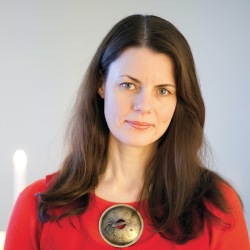Every relationship is as unique as the people in it, but there are universal steps that can help you move further along the path of deepening your relationship. They help to build a conscious relationship based on truth, not illusion; on honesty, not pretence; on empathy, not judgement.
Living in a conscious relationship is healing and liberating. All the energy that was previously spent hiding the true self can now be harnessed to fulfill your dreams and to nurture and support yourself and your partner. This creates the deep sense of a safe home that each of us needs to live a long and happy life.
For many of us, this sense of a safe home is something we haven’t experienced even in childhood, but which we still expect and hope for in a lifelong relationship. Often believing that someone or something outside of us is to blame for the fact that we are still without it.
Honesty, respect, love
The core values of a conscious relationship are honesty, respect and love. These are what create a sacred space between two people. A space where both can be truly themselves, with all their dreams, quirks, fears and longings, because they have helped each other to open quietly to their true nature.
There are no power games in a conscious relationship. Or, if they do arise, they are quickly discovered and decisively dismissed. Conflict is neither avoided nor feared, but welcomed as a doorway to deeper understanding of self and each other.
With a partner’s love, the wounds of childhood or previous relationships can be healed, allowing us to become more whole, healed and increasingly authentic. A conscious relationship gives you the wings to live more courageously, more freely and more powerfully than you thought possible, because you have discovered your true dreams and strengths and moved through the inner obstacles.
We are the masters of our own lives and it is in our hands that we shape the relationships that matter most. Absent or unhappy parents influenced our lives in childhood, but as adults it is time to take responsibility – you are the full creator of your own reality.
Starting from the inner reality always.
An inevitable prerequisite for a conscious relationship is an agreement that everyone is responsible for their own well-being and emotions first – I am responsible for what happens in me, and you are responsible for what happens in you.
The classic formula in conflict is to respond when a partner touches a painful place inside us with their actions or words. Then you want to immediately make it clear to the other person that they behaved badly and should change. But instead of blaming, it’s worth looking inside yourself: why is this action or word really hurting me? Are there alternative interpretations of my partner’s words and actions? Am I 100% sure that I’m choosing the correct one? Is there a fear, an unrepaired wound or a self-defeating belief inside me that I should address? Is there anything I should do or change to shift this reality if it disturbs me so deeply? Taking offence and getting angry are active actions – you do it to yourself, not your partner.
It is also important to perceive whether your partner’s action was unintentional or intentional. Most of the time, we hurt each other out of ignorance or in self-defence. When the wound in us is activated, it requires a great deal of maturity and strength to remain empathic. But it is possible. Each of us has the power and the strength to decide how we respond to external stimuli. The more consciously we observe our own reactions and painful places, the easier and quicker it is for us to recognise what is really going on inside us and to focus our attention on ourselves – the place that needs to be acknowledged and healed. From the inside we can then move to the external world and start making necessary changes there. The harsh reality is that noone is perfect and forgiveness is necessary component of any relationship. But at the same time we are fully responsible for our own well-being and taking action where and when it is needed. Whether it is internal and/or external action.
A relationship develops when we are willing to work at it.
We need to let go of the belief that in the right relationship, everything comes easy. Yes, the chemistry between us and our shared interests and values are a great foundation, but to go far and deep together, sooner or later we need to consciously invest time and energy in the relationship.
Many of us are fascinated by the belief that if the partner is the one, everything will just work itself out, without effort. So we give up when the first bumps in the relationship appear. This pattern leads from one superficial relationship to another, where, after the honeymoon phase, there is only the sound of illusions being shattered, and it becomes clear that you cannot rely on each other to the end. In the end, only emptiness remains. Then they enter into a new relationship, hoping that this time things will work out.
This approach allows for a lifetime of partners and loves, and lessons to be learnt, but the real depths of the relationship and the sense of intimacy tend to remain elusive. If it’s a free and conscious choice for both parties, it’s a way of life. How far you are able to go in a relationship is directly related to how much work you are prepared to do – both with yourself and together. That’s why it’s a good idea to know each other’s attitudes from the start.
At the same time – it is fruitless to convince others to change, if they are not already motivated to address the issues that they are bringing to the shared table. But if you turn your focus and efforts towards yourself, working on the themes that are challenging you, a change for the better will be inevitable. The partner will have to start changing or addressing their complementary patterns or the relationship between you will change in other ways. Every relationship is a dynamic constellation where change in one part will inevitably lead to changes in the whole system.





